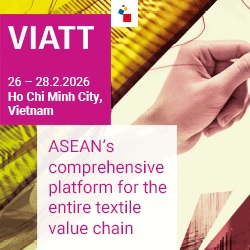In a commitment to advancing sustainability in sportswear, Puma is exploring the potential use of Renewcell's dissolving pulp cellulose, Circulose, derived from cotton-rich textile waste. Anne-Laure Descour, Puma's Chief Sourcing Officer, announced the initiative at the United Nations climate change summit in Dubai, highlighting the brand's collaboration with Hong Kong-based manufacturer Crystal International Group.
The focus is on utilizing Circulose for producing lyocell, modal, viscose, acetate, and other regenerated fibers, minimizing reliance on virgin forest sources. The initiative aims to create a specific set of products that align with the UN Fashion Industry Charter for Climate Action, pushing for net-zero greenhouse gas emissions in the fashion industry by 2050.
Descour acknowledged that this venture with Circulose is in its early stages, emphasizing it as a kickoff project. The move aligns with Puma's commitment to sustainable practices, focusing on waste reduction and responsible sourcing. The sportswear giant plans to source more cotton waste from its suppliers in Bangladesh, redirecting it back into production. Collaborating with Crystal International Group, Puma aims to integrate recycled materials, such as post-production cotton offcuts, into its products.
Renewcell, the producer of Circulose, has faced challenges in expanding the use of its sustainable material. Despite partnerships with renowned brands like Ganni, Levi Strauss, Inditex, and H&M Group, Renewcell has struggled with sales, prompting a strategic review and the search for new funding.
Puma's commitment to sustainability extends beyond material choices. Descour emphasized the importance of collaboration with suppliers, transparency, and shared visions. The brand is working with an unnamed American university to provide sustainability education for its suppliers, acknowledging the increasing complexity of regulatory requirements.
Crystal International Group's Vice President of Global Sustainability, Catherine Chiu, urged suppliers to be proactive in adopting sustainable practices. She emphasized short-term investments with returns in less than two to five years, citing examples like solar installations that benefit both the environment and cost savings.
In line with the European Parliament's vision for sustainable products, the negotiations on revising the EU's ecodesign framework include a ban on the destruction of unsold clothing, accessories, and footwear two years after the law takes effect. The move signals a shift toward a more circular and sustainable model in the fashion industry.
As Puma explores Circulose for future products, the collaboration with Renewcell signifies a stride toward more sustainable and responsible practices in sportswear production. The fashion industry's commitment to circularity and reduced environmental impact is becoming increasingly vital in meeting global sustainability goals.





